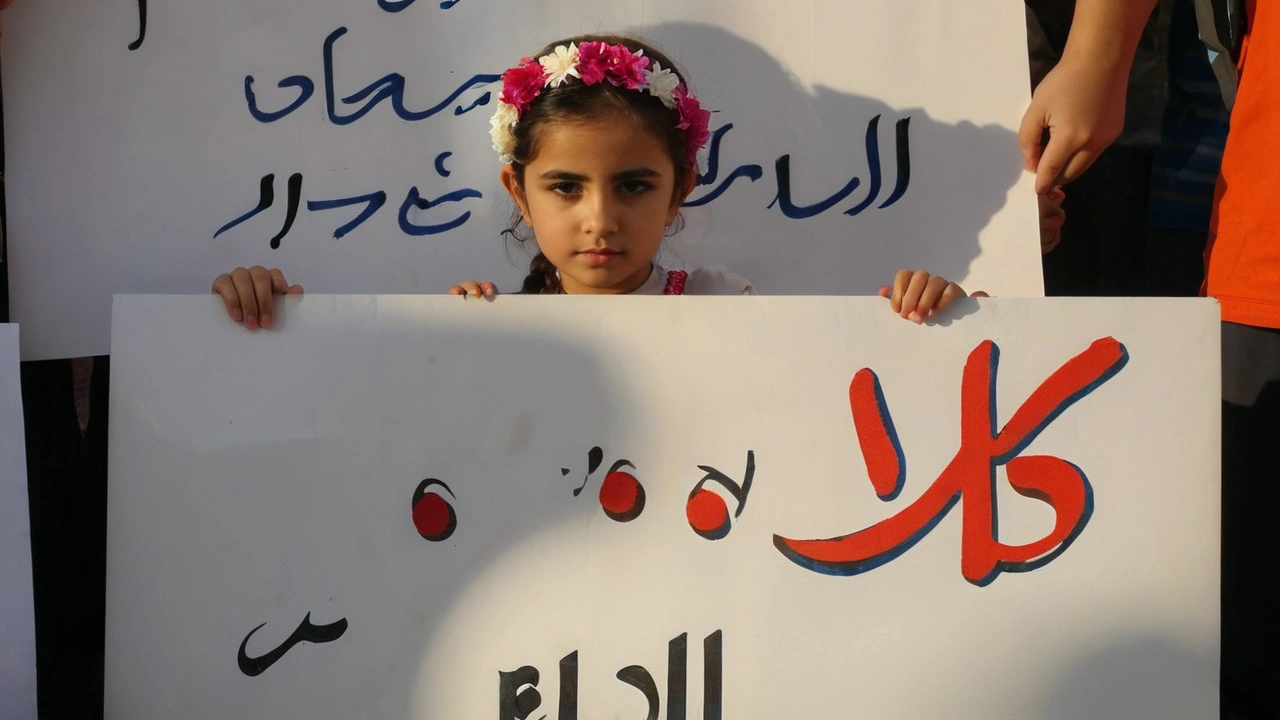Introduction to Iraq's Controversial Marriage Bill
In a bold and deeply divisive move, Iraq's parliament is currently deliberating a bill that proposes to lower the legal marriage age for girls to nine years and for boys to twelve. The suggestion, which has stirred a hornet's nest, is part of the Jaafari Personal Status Law. This law seeks to bring myriad changes said to align with certain interpretations of Islamic jurisprudence. However, the proposed adjustment to the marriageable age has drawn swift and strident criticism from many quarters.
Public Reaction and Outrage
The initial response from the public and various organizations has been nothing short of a wave of indignation. Human rights groups have vocally condemned the proposal, highlighting that such laws could pave the way for increased child marriages. These organizations argue that legalizing marriages for such young ages endangers children, disrupting their physical, psychological, and educational development. Voices from within the Iraqi society, including parents and educators, have expressed alarm. They argue that permitting girls as young as nine to marry could perpetuate gender inequalities, making young brides susceptible to various forms of abuse.
Proponents’ Justification
On the other side of the debate, proponents of the bill argue that it seeks to respect and formalize Islamic law, asserting that girls reaching puberty at earlier ages should have the option to marry. Advocates of the bill, including certain lawmakers and religious leaders, emphasize that it provides a legal framework for marriages that some communities already undertake. They argue this legislation harmonizes tradition with legality, ensuring such marriages are formally recognized and regulated.
Critics’ Concerns
Critics, however, counter these arguments by pointing out the severe consequences of such a law. They highlight the extensive body of research showing that early marriage often results in severe physical health risks, including complications from early pregnancies, which are particularly perilous for underage brides. Additionally, there are significant psychological and emotional impacts, leading to long-term trauma and mental health issues. Moreover, child marriages severely disrupt the education and future prospects of young girls, who are often forced to drop out of school. This perpetuates a cycle of poverty and dependence, stalling any progress made towards gender equality and women’s empowerment.
Women's Rights Advocacy
Women's rights advocates have been especially vocal in their opposition, stating that the bill threatens to undo years of progress in protecting women's and children's rights within Iraq. They argue that passing the bill could set a dangerous precedent, encouraging regressive laws that target women and children under the guise of tradition and religious conformity. Furthermore, they have called for the government to uphold international human rights standards, which unequivocally advocate for the protection of children from early and forced marriages.
International Pressure and Opposition
This controversy has not been limited within Iraq's borders. The United Nations, along with various other international organizations, has voiced strong opposition to the bill. These bodies have issued statements urging the Iraqi government to reconsider the proposed changes, emphasizing that such legislation would violate international human rights conventions aimed at protecting children from exploitation and abuse.
Educational Impacts
Educators and child welfare experts have also weighed in, emphasizing the critical importance of education for young girls. They argue that being forced into marriage at a young age truncates their educational journey, limiting their opportunities for personal and professional growth. These experts contend that the bill would create an environment where girls are viewed primarily through the lens of marriage rather than as individuals with the right to education and self-determination.
Broader Societal Concerns
The broader societal implications of the bill cannot be overstated. Laws that permit child marriages contribute to systemic gender inequality, reinforcing stereotypes and norms that devalue girls and women. By institutionalizing such practices, these laws send a message that it is acceptable to prioritize tradition over the fundamental rights and well-being of children. The introduction of this bill, therefore, carries far-reaching consequences that could undermine efforts to build a more egalitarian and justice-based society.
Conclusion
As Iraq's parliament continues to deliberate the proposed bill, the tension between respecting cultural and religious traditions and upholding the fundamental rights of children and women remains at the forefront of the debate. The substantial local and international opposition underscores the complexities of legislating around deeply ingrained traditions while striving to protect vulnerable populations. The ultimate decision made by Iraqi lawmakers will not only shape the future of young girls in the country but also signal Iraq's commitment to progressing in alignment with global human rights standards. The hope remains that the government will heed the extensive criticism and reconsider the bill, ensuring that the rights and well-being of all its citizens, particularly its children, are adequately protected.


Evangeline Ronson
August 9, 2024 AT 23:21Cate Shaner
August 10, 2024 AT 03:28Thomas Capriola
August 10, 2024 AT 06:04Rachael Blandin de Chalain
August 10, 2024 AT 23:16Soumya Dave
August 11, 2024 AT 12:41